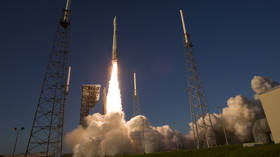NASA recovers deep-space asteroid samples

The US space agency NASA successfully recovered a capsule on Saturday containing the largest asteroid samples ever retrieved following a seven-year voyage through deep space.
The capsule, which was carrying a payload of rubble and dust from the near-Earth asteroid Bennu, will help scientists better understand how our solar system was formed and how Earth came to be habitable.
NASA’s webcast of the landing told viewers that the capsule, which had been speeding to Earth at over 27,650mph (44,500kph) before it safely parachuted to the US military’s Utah Test and Training Range, had traveled about a billion miles to make it to this point.
Speaking after the landing of the capsule, NASA administrator Bill Nelson said the project demonstrates that the “impossible became possible.”
“It brought something extraordinary,” he said. “The largest asteroid sample ever retrieved on Earth. It’s going to help scientists investigate planet formation. It’s going to improve our understanding of the asteroids that could possibly impact the Earth.”
Nelson added that the mission “proves that NASA does big things, things that have inspired us, things that unite us.”
The initial results of the analysis of the space rocks and debris will be announced at a news conference on October 11. The majority of the sample will be preserved for study by future generations of scientists. The US is the second country to safely return asteroid samples to Earth, after Japan.
It has been predicted that Bennu, which is 499 meters in diameter, is rich in carbon and that it likely contains water molecules locked into mineral deposits – potential building blocks of life. The asteroid is likely to be studied throughout the next century, given the current estimate that it has a one-in-2,700 chance of catastrophically impacting Earth in the year 2182.
Meanwhile, the transit Osiris-Rex spacecraft that had been transporting the capsule through space almost immediately began a new mission to study another asteroid, Apophis. It is expected to take six years to reach its new destination.














